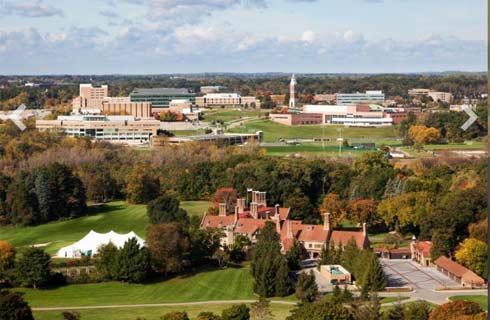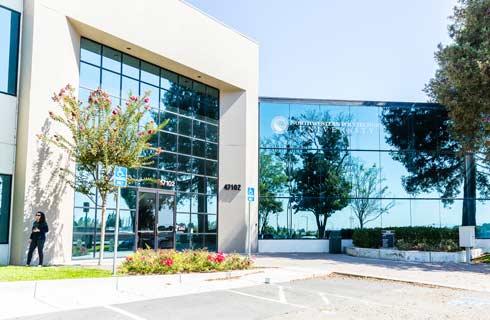转化医学哲学博士
Doctor of Philosophy in Translational Medicine

学历文凭
Ph.D.

专业院系
Faculty of Health Sciences

开学时间

课程时长

课程学费

国际学生入学条件
Master’s degree from a recognized university with a minimum of an A- average.
Language Requirements
-
International English Language Testing System (Academic module) with a minimum score of 7 in each component, or
IDP—雅思考试联合主办方

雅思考试总分
7.0
- 雅思总分:7
- 托福网考总分:93
- 托福笔试总分:160
- 其他语言考试:NA
CRICOS代码:
申请截止日期: 请与IDP联系 以获取详细信息。
课程简介
Translational Medicine is driven by our patients and their diseases. Guided by this primary focus, translational research spans across the spectrum from molecular and cell biology to preclinical models to patient studies and back again (see Figure). Our programs aim to train the next generation of researchers to be effective translators of biomedical discovery. Our graduates will operate at the intersection of clinical and related sciences and will have the expertise to generate and lead discovery through an integrated process, increasing the efficiency of translating science knowledge into health improvement. The new and innovative Master of Science (MSc) and Doctor of Philosophy (PhD) in Translational Medicine is a unique research based graduate program. The program provides students with a fresh perspective, offering a curriculum interweaving graduate level research with authentic clinical experiences in a multidisciplinary environment across departments at Queen’s University. Combining the fields of medicine and research, this programs links graduate level research skills with a variety of clinical experiences including patient interactions, clinical observerships and medical rounds to enhance professional thinking and action. This innovative curriculum will offer important foundation work for future careers in the biomedical field, and will provide critical skills for pursuing careers that include clinician scientists, biomedical researchers, leaders in industry and public health andor health policy.
相关申请
 预科
预科 奖学金
奖学金 实习机会
实习机会 在校学习
在校学习 跨境学习
跨境学习 校园授课-线上开始
校园授课-线上开始 在线/远程学习
在线/远程学习
开学时间&学费
学费信息仅供参考,请与IDP联系以获取详细信息
| 开学时间 | 时长 | 学费 | 地点 |
|---|
学校排名

世界排名251
数据源:
泰晤士高等教育世界大学排名
关于女王大学

女王大学(Queen's University)是加拿大历史最久、最有名的大学之一。该校是1841年根据维多利亚女王的皇家宪章建立,原为教会赞肋学校,1912年变为非教会学校。而在众多加拿大本地人的眼中,女王大学其实是加拿大最适合本科生就读的大学。女王大学以自己优良的品质,吸引着来自世界各地的学生。虽然它的生源多半家境优裕,但学校还是保证让每一个入学的学生享有足够的经济支持以顺利完成他们的学业。不知在安大略省的女王大学在1841年创立时,是否已经考虑把自己塑造成具有皇后气质:高傲、自信、卓而不群,相当有钱,多有骄人之处,以至与这个名称相符。无论怎样,事实是:女王大学的确不凡,这里的学生更聪明,更美丽,更强壮,更快乐,更具优越感,也更喧闹,更活力盎然,甚至更干净。女王大学的MBA过去五年来四次被“加拿大商业杂志”评为第一。根据商学院系主任MARGOT NORTHEY的策略,女王大学商学院的目标是:“尤其致力于吸引在通讯、生物技术上有造诣者,为已是科学的领导者补充商业技巧。”美国的“商业周刊”将女王大学的EMBA及非学位培训项目排名为世界上最好的项目之列,甚至高于瑞士的洛桑管理学院(IMD International)和伦敦商学院(London Business School);英国的“经融时报”称女王大学是在工程教育领域第一个采用“综合学习模式”、第一个设生物医学计算项目的学校。女王商学院的专长是帮助科技人才在管理学能力上更上一层楼,有三分之一的学生在入学前都已经取得其他硕士学位。美国《商业周刊》强调,企业对於女王大学商学院学生的评价都非常好,认为该校学生因为大部分有科技背景,因此学生的分析能力相当优秀。由于校友的慷慨资助,加上该校因杰出科研工作而吸引到许多资助,女王大学拥有第一流的设施装备。从实验室到体育馆,从图书馆到学生活动中心,所有的设施都很先进。校内的JOSEPH S. STAUFFER图书馆以电子服务和高科技联网而著称于世。学校的“生物科学综合楼”耗资5,000万加元。值得一提的是,女王大学于1994年在英国设立了“国际研究中心”,该中心规模庞大,包括了前皇家格林威治天文台,还可以为该校学生及世界各大学的学生提供以欧洲研究为中心的各项课程。
本校相关课程
其他相关课程

生物力学与运动科学哲学博士
 特拉华大学
特拉华大学泰晤士高等教育世界大学排名:474
学历文凭
Ph.D.
开学日期
课程费用总额










 加拿大
加拿大





